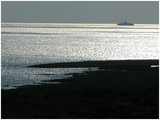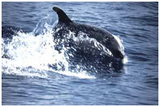Introduction
The National Oceanographic Data Committee (NODC) of the Netherlands is the national platform for exchange of oceanographic and marine data and information, and for advisory services in the field of ocean and marine data management.
 The speed and the ease with which users can identify, locate, access, exchange and use oceanographic and marine data, data products and information are vital for the success of marine research projects, for effective support of marine economic activities, and sustainable marine environmental management. Data are acquired for a wide range of disciplines, by in-situ and remote sensing observations, using a large variety of platforms, instruments and methods, and are processed and managed by thousands of institutes and agencies from all over the globe. Data are required by end-users and intermediate users at different time scales, from real-time with first level automatic quality indicators to long data series, validated through extensive quality control.
The speed and the ease with which users can identify, locate, access, exchange and use oceanographic and marine data, data products and information are vital for the success of marine research projects, for effective support of marine economic activities, and sustainable marine environmental management. Data are acquired for a wide range of disciplines, by in-situ and remote sensing observations, using a large variety of platforms, instruments and methods, and are processed and managed by thousands of institutes and agencies from all over the globe. Data are required by end-users and intermediate users at different time scales, from real-time with first level automatic quality indicators to long data series, validated through extensive quality control.
Ocean and marine data and information are very important for research, but also for monitoring, predicting and managing the marine environment, assessing fish stocks and biodiversity, offshore engineering, controling any hazard or disaster, and tourist industry. Data support the execution of international protocols, conventions and agreements, which have been signed by coastal states for protection of the seas, such as the OSPAR convention for the North Sea. Data are also essential for implementation of Europe’s environmental policy concerning Integrated Coastal Zone Management (ICZM), the Water Framework Directive, and the new Marine Strategy.
Users want easy identification, viewing, access and combination of data across disciplines, organisations and countries, using internet facilities.
Therefore the overall objective of the National Oceanographic Data Committee (NODC) of the Netherlands is to effect a major and significant improvement in the overview and access to marine and oceanographic data and data-products from government and research institutes in the Netherlands. This is not done alone and only with a national focus, but on a European scale as an active partner in the Pan-European SeaDataNet project and on a global scale as the Netherlands representative in major international organisations in this field, ICES and IOC-IODE.
 SeaDataNet is the leading initiative in Europe, actively operating and further developing a Pan-European infrastructure for managing, indexing and providing access to ocean and marine data sets and data products, acquired via research cruises and other observational activities. SeaDataNet is coordinated by the National Oceanographic Data Centre’s from 35 countries around European seas. This is done as an EU Research Infrastructures I3 project, which was awarded in the FP6 programme and began in early 2006. It focuses on interconnecting the data centres to provide integrated on-line access to the most comprehensive sets of multi- disciplinary in-situ and remote sensing marine data, meta-data and products.
SeaDataNet is the leading initiative in Europe, actively operating and further developing a Pan-European infrastructure for managing, indexing and providing access to ocean and marine data sets and data products, acquired via research cruises and other observational activities. SeaDataNet is coordinated by the National Oceanographic Data Centre’s from 35 countries around European seas. This is done as an EU Research Infrastructures I3 project, which was awarded in the FP6 programme and began in early 2006. It focuses on interconnecting the data centres to provide integrated on-line access to the most comprehensive sets of multi- disciplinary in-situ and remote sensing marine data, meta-data and products.
This underpins European directives and recent large-scale framework programmes on global and European scales (GEOSS and GMES), that urge provision of access to, and exchange of, environmental data and information. The Blue Paper on an integrated EU maritime policy strongly promotes an integrated and intersectorial approach to ocean affairs in Europe which requires reinforced cooperation and effective coordination of all sea-related policies at the different decision-making levels. As one of its measures it proposes the development of a European Marine Observation and Data Network (EMODNet) to facilitate long-term and sustainable access to the interoperable, high-quality data necessary to understand biological, chemical and physical behaviour of seas and oceans.
The INSPIRE Directive aims for the creation of a European spatial information infrastructure that delivers integrated spatial information services to end-users. These services should allow users to identify and access spatial or geographical information from a wide range of sources, from the local level to the global level, in an inter-operable way for a variety of uses. The implementation is foreseen as ‘system of systems’, indicating that where possible use will be made of existing components, organisations and networks. The emphasis is on improving mutual cohesion, cooperation, exchange of data, harmonisation of quality of data, harmonisation of protocols for data access, not only within sectors and at national scale, but also across sectors and borders.
The National Oceanographic Data Committee (NODC) of the Netherlands undertakes a national project NODCi (2006 – 2009) for developing and implementing a national network, interconnecting the data centres of major marine institutes in the Netherlands. This functions as the Dutch node in the SeaDataNet infrastructure.